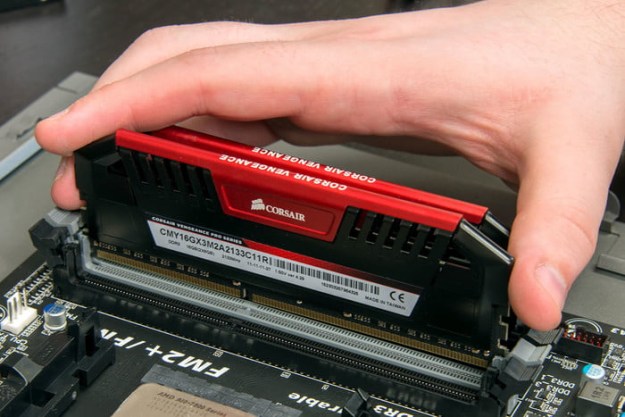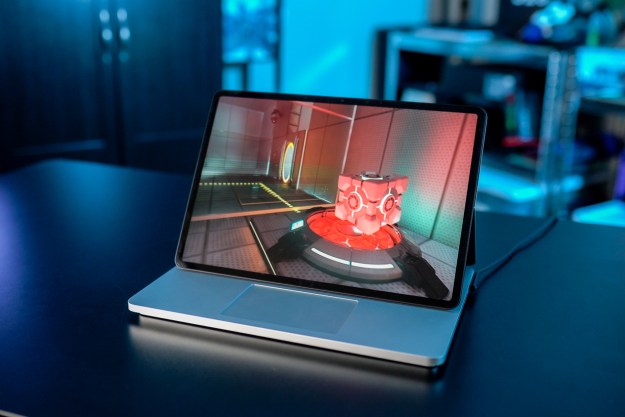The new Samsung Chromebook Plus and Pro, announced at CES 2017, were preceded by a reminder the company has backed this whole Chromebook thing all along. In fact, it produced the first Chromebooks all the way back in 2011. Every other major PC manufacturer has jumped on board since then, but Samsung’s have remained among the best options.
Now, six years later, Samsung has another first. It’s the first to introduce a Chromebook built from the ground up with Google Play in mind. This initiative, which brings Android apps to Chrome OS, has rolled out as a beta program for a select few models. But Samsung’s Plus and Pro are the first to release with Google Play from the start.
Our hands-on time with the Chromebook Pro was very favorable. We like its quality design, high-resolution display, and beefy hardware. But there’s more going on here than just a nice Chromebook. These new systems throw fresh fuel on the fire of competition between ARM-based processors, like those found in phones, and Intel’s x86 chips, found in most Windows laptops.
Undercutting Surface
Alanna Cotton, the VP of Mobile Computing at Samsung, was careful not to position the new Chromebooks as a direct Surface competitor. She said the focus is on “targeting the Chrome OS lover, who loves ease and simplicity,” but she also admitted the new models are ideal for students and mobile professionals, not least of all because they include an active digitizer stylus.
That stylus, shown in demo photos, will be called on to do the same tasks users ask of their Windows 2-in-1s. Cotton spoke to this, saying the pen “works how they work, from classrooms, to the meeting room.” She spoke, both on and off stage, about how it might be used by students to take notes, or by artists to sketch out a concept.
It’s easy to see why Samsung wouldn’t want to take Surface on directly. The Chromebook Pro and Plus sell for far less, and have less capable hardware. But for certain people – especially the mentioned students and mobile professionals – these Chromebooks fill a similar role. Samsung itself describes the system doing many of the same tasks as a Surface Pro.
They would even have a direct Surface competitor, if Microsoft hadn’t abandoned it. Remember the vanilla Surface? It started as an ARM-based system running Windows 8, then transitioned to an Intel x86 processor with the Surface 3, before going out of production. Microsoft couldn’t figure out how to make it appealing without jacking up the price.
Making good on ARM’s threat to x86
Apple’s release of the iPad sent real shockwaves through the PC ecosystem. The following CES was clouded by speculation that “Wintel” systems – Windows laptops powered by Intel hardware – might be threatened. Microsoft pulled out of its CES booth a couple shows after, which only encouraged naysayers.
Samsung’s Chromebook Plus shouts ‘anything you can do, I can do cheaper.’
Yet the predicted doom never came to pass. PCs sales haven’t been great, but tablets haven’t roared in behind them. Microsoft and Intel remain strong. The threat of ARM-powered computers has come to nothing. But that doesn’t mean the competition is over, and devices like the Chromebook Plus and Pro are exactly the devices that could make this struggle interesting again.
It’s ironic, because this device can be had with either. The $450 Chromebook Plus has an ARM chip of Samsung’s design, while the price for the Intel-powered Pro version hasn’t been announced. While Samsung admits the Plus will lag the Pro in multi-tasking and certain demanding workloads, the weaker sibling may end up being the system to get.
Think it over. The Plus and Pro run the same apps. The Plus and Pro have the same 2,400 x 1,600 display. They have the same ports, same battery, same keyboard, same touchpad, same stylus. Sure, the Pro may be singing “anything you can do, I can do better.” But many looking to buy a laptop will instead hear the Plus shout “anything you can do, I can do cheaper.”
Chromebooks have been met with favorable reception so far, but they haven’t entirely caught on because they lack broad app support, and lack advanced features like a stylus or high-resolution display. The Chromebook Plus addresses these problems. If others take Samsung’s lead, we may see serious competition between Chrome OS and Windows laptops by the end of 2017 – especially in the arena of budget



